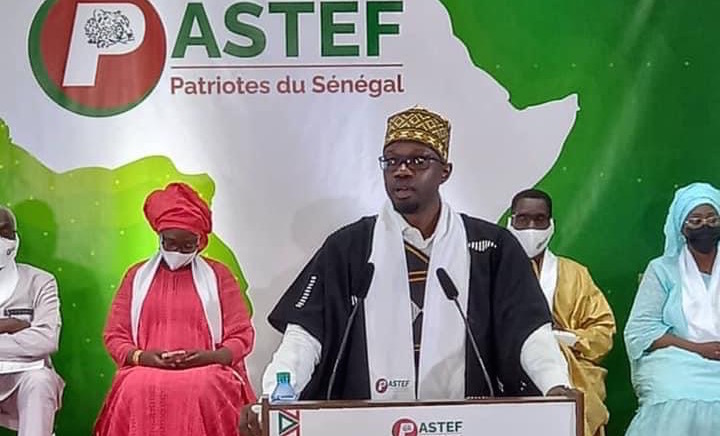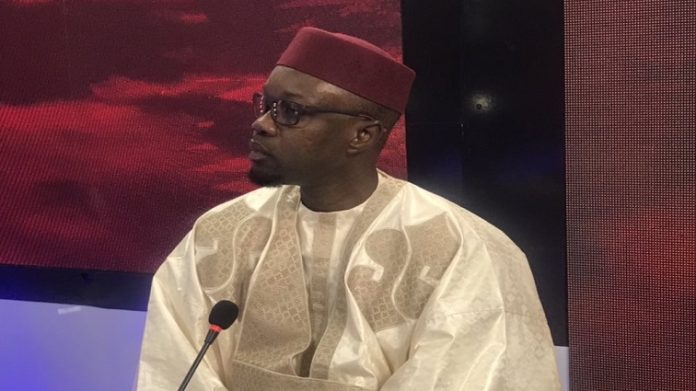
Several countries in the African continent’s Sahel region—sometimes called the “coup belt”—are slated to hold elections next year. The only one of them where the vote has a chance of being even remotely fair is Senegal, which has long been an outlier to the region’s anti-democratic trends.
That doesn’t mean that Senegal’s democracy is healthy, however. Since the country gained independence from France in 1960, it has been governed by only four presidents. And just two have taken office in peaceful transfers of power—the first of which occurred in 2000. After some speculation about whether incumbent President Macky Sall would attempt to skirt Senegal’s two-term limit to run again this year, he announced in July 2023 that he would not stand in the Feb. 25 elections and planned to step down.
His decision was “both a relief and a source of pride for a country often seen as a barometer of democracy in Africa,” French newspaper Le Monde wrote in an editorial. It will be the first time that a Senegalese incumbent president organizes an election that they are not themselves running in.
That Sall would abide by the constitution was not a given. During his 12 years at Senegal’s helm—two six-year terms—he has eroded the country’s young democratic bona fides. The Economist Intelligence Unit downgraded the government in Dakar from a “flawed democracy” to a “hybrid regime” in 2020, and its Freedom House score fell several times over the course of Sall’s terms, too. Journalists now report self-censoring in an increasingly restrictive media envi
Sall has made a pattern of jailing his political opponents under spurious charges, bending Senegal’s justice system to his will. The latest victim is opposition leader Ousmane Sonko, who heads the Liberate the People opposition coalition and placed third in the last presidential elections in 2019.
In 2021, Sonko faced rape allegations that he claimed were concocted to stall his career. On his way to court, Sonko’s supporters took to the streets, and he was arrested on charges of disturbing public order. The ordeal unleashed weeks of nationwide protests that saw 14 people killed—12 of them by security forces, according to Amnesty International. Sall’s authorities shut down the internet and businesses were subject to widespread looting.
Demonstrations have continued on and off since then—with many more casualties and abuses by security forces reported—as Sonko has faced a never-ending series of legal battles. Though Sonko was acquitted of the rape charges, he was convicted in June 2023 on charges of “corrupting youth,” another sexual offense, and barred from participating in legislative elections that year. A month later, Sonko was saddled with further charges of plotting an insurrection, and his participation in February’s election is in question. Last December, a Senegalese court ordered Sonko’s candidacy to be restored, but he remains in jail, and the government reportedly intends to appeal the verdict.
Sonko “is especially popular among the youth, who are drawn to his populist platform of radical opposition and greater economic independence,” FP’s Christina Lu reported in March 2021. Senegal is facing many challenges, including widespread youth unemployment and rising insecurity. Sall is also under scrutiny for various corruption scandals. Many Senegalese see former colonizer France behind their country’s woes, and protests have taken on a distinctly anti-French bent.
Sonko promises to be an antidote to all of the above. Last year, he filed a criminal complaint in a French court accusing Sall of “crimes against humanity.” Sall’s supporters, for their part, say he and his United in Hope (BBY) coalition have bolstered Senegal’s infrastructure and increased public sector wages.
Senegal’s Constitutional Council is expected to announce an official slate of candidates later this month, but—in addition to Sonko—an array of politicians has already entered the fray. Sall announced in September that Prime Minister Amadou Ba would be the BBY’s continuity candidate. Idrissa Seck, the runner-up in 2019’s presidential election, is also in the running. So is former Prime Minister Aminata Touré, among a wide field of other expected candidates.
With no reliable polling available yet, the big question that remains is whether Sonko will be able to run or not. The BBY came out on top in 2022 legislative elections—but the leading candidates of the Liberate the People coalition had been disqualified. If no candidate achieves a majority in the first-round vote, a runoff will be held at a later date. Amnesty International has warned of heightened repression ahead of the February contest.
Sonko’s participation is already a heated issue on the campaign trail: Seck has come out in favor of Sonko and a free vote. “We can disagree openly in Senegal, but we should never force our brothers and sisters into silence through persecution,” Seck is quoted by Al Jazeera as saying. Even though Sall himself is not running in the election, he is proving that he can still exercise much sway over the contest’s outcome.


